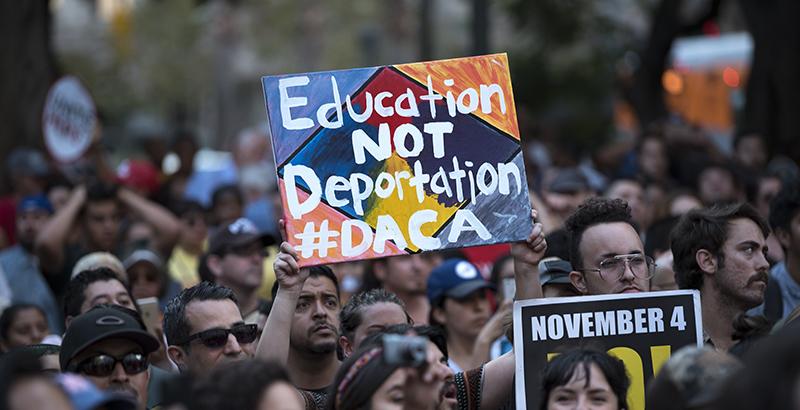
The ongoing debate surrounding the Deferred Action for Childhood Arrivals, or DACA administrative relief program, may be nearing its end.
DACA, which was created in 2012 under the Obama administration, gave about 700,000, now young adults known as “Dreamers,” who were brought to the United States as children, work authorization and protection from deportation.
The Supreme Court is set to decide whether or not the Trump Administration is legally allowed to shut DACA down. Experts believe that if the Supreme Court rules against DACA, the Trump administration will allow the enrollments, which are granted for two years, to expire.
“DACA was a temporary stopgap measure that, on its face, could be rescinded at any time,” Solicitor General Noel Francisco said in a nearly 1½ -hour argument Tuesday. “And the department’s reasonable concerns about its legality and its general opposition to broad non-enforcement policies provided more than a reasonable basis for ending it.”
Attorneys on the opposing side “argued that the government had failed to adequately consider how ending DACA would negatively affect hundreds of thousands of people, and needed to present a better reason for ending the program,” according to Time.
The Center for American Progress published a study revealing that Texas has about 100,000 DACA recipients. DACA statuses have differing expiration dates, so if the program ceases, these individuals will lose their benefits at varying times.
President and general counsel of Mexican American Legal Defense and Educational Fund Thomas Saenz says that DACA recipients are entitled to go to court and try to stop removal or deportation. This resistance would join other backlogged immigration agendas and they would remain in the country until their day in court, according to NBC News.
Supreme Court decisions are often not handed down until months after oral arguments, and this case will likely be no exception.












